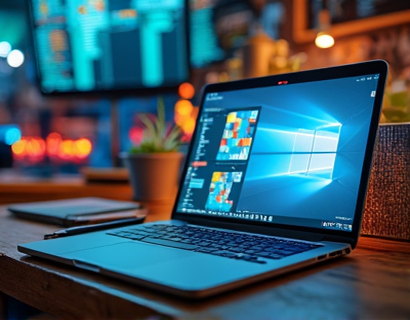Maximize Event Impact with Advanced Planning and Real-Time Analytics
In the realm of event planning, the difference between a mediocre gathering and an unforgettable experience often hinges on meticulous preparation and the ability to adapt in real-time. Advanced planning and real-time analytics have emerged as pivotal components in revolutionizing the way events are organized and executed. This article delves into how leveraging sophisticated event management tools can transform your approach to event planning, ensuring seamless registration, precise tracking, and profound insights that enhance attendee engagement and overall event success.
Understanding the Importance of Advanced Planning
Advanced planning is the cornerstone of a successful event. It involves a detailed and strategic approach to every aspect of the event, from initial concept to post-event evaluation. By employing advanced planning techniques, event organizers can anticipate potential challenges, optimize resource allocation, and create a more cohesive and engaging experience for attendees. This begins with setting clear objectives and defining the target audience, followed by a thorough analysis of venue options, logistics, and budget constraints.
Comprehensive Event Checklists
An essential part of advanced planning is creating comprehensive checklists to ensure no detail is overlooked. These checklists should cover everything from vendor selection and contract negotiations to content creation and technical requirements. For instance, confirming the availability and specifications of audiovisual equipment well in advance can prevent last-minute setbacks. Similarly, coordinating with speakers or performers requires detailed agreements and timelines to ensure smooth execution.
Utilizing Project Management Tools
Project management tools are invaluable in maintaining organization and oversight throughout the planning process. Platforms like Asana, Trello, or Monday.com allow event planners to assign tasks, set deadlines, and track progress in real-time. These tools facilitate collaboration among team members, ensuring everyone is on the same page and aware of their responsibilities. By centralizing information and streamlining communication, these tools significantly reduce the risk of miscommunication and delays.
Real-Time Analytics: A Game Changer for Event Management
Real-time analytics have emerged as a transformative force in event management, providing organizers with immediate insights into various aspects of the event. This data-driven approach enables timely adjustments and enhances the overall attendee experience. By integrating real-time analytics into your event planning, you can monitor key metrics such as registration rates, attendance patterns, and engagement levels, allowing for proactive decision-making.
Registration Management and Real-Time Updates
Seamless registration is crucial for a positive first impression and smooth event flow. Advanced registration platforms offer real-time updates, allowing organizers to monitor sign-ups as they come in. This not only helps in managing capacity but also provides valuable data on attendee demographics and preferences. For example, if a particular session is filling up rapidly, organizers can send targeted reminders or promotions to encourage last-minute registrations for other sessions.
Attendee Tracking and Personalization
Real-time tracking of attendees can significantly enhance the personalized experience. By using badges or mobile apps, organizers can gather data on attendee movements and interactions within the event space. This information can be used to tailor content and activities, ensuring that attendees are engaged with the most relevant sessions and networking opportunities. For instance, if a participant spends more time in the exhibition area, the system can suggest related workshops or speakers they might find interesting.
Enhancing Engagement through Real-Time Feedback
Real-time analytics also facilitate the collection of immediate feedback from attendees. Through mobile apps or interactive kiosks, participants can provide instant reactions to sessions, speakers, and overall event experience. This feedback can be analyzed on the fly, enabling organizers to make adjustments during the event. For example, if a session receives low engagement scores, the organizer can quickly address the issue by adjusting the content or format to better meet attendee expectations.
Insightful Analytics for Post-Event Evaluation
The benefits of real-time analytics extend beyond the event itself, providing valuable insights for post-event analysis and future planning. Comprehensive analytics dashboards offer a holistic view of the event's performance, from financial metrics to attendee satisfaction. These insights are crucial for evaluating the success of the event and identifying areas for improvement.
Financial Performance Analysis
Detailed financial analytics help organizers understand the cost-effectiveness of their event. By tracking expenses against revenue, including ticket sales, sponsorships, and vendor fees, planners can assess the financial health of the event. This data can inform budget allocations for future events, ensuring more efficient use of resources. For instance, if certain sponsorship packages yield higher returns, organizers can focus on securing more of these in the future.
Attendee Satisfaction and Retention
Analyzing attendee feedback and satisfaction scores provides deep insights into the strengths and weaknesses of the event. High satisfaction rates indicate successful strategies, while areas of concern highlight opportunities for improvement. By segmenting feedback by demographics or session types, organizers can tailor future events to better meet the needs of different attendee groups. Additionally, tracking repeat attendance rates helps in building a loyal community of participants.
Optimizing Future Events
The data collected through real-time analytics and post-event evaluations are invaluable for planning subsequent events. By identifying trends and patterns, organizers can refine their approaches, from selecting more popular speakers to improving logistical processes. Continuous improvement is key to maintaining a competitive edge and delivering consistently high-quality events.
Integrating Technology for Seamless Execution
The integration of advanced technology is essential for realizing the full potential of advanced planning and real-time analytics. Modern event management platforms offer a suite of tools designed to streamline various aspects of event planning and execution. These platforms often include features such as digital signage, mobile apps for attendees, and integrated communication tools for the event team.
Digital Signage and Wayfinding
Digital signage can greatly enhance the attendee experience by providing real-time information on schedules, session locations, and other important details. Interactive kiosks and wayfinding apps guide attendees through the event space, reducing confusion and ensuring they make the most of their time. This technology not only improves navigation but also allows for dynamic content updates, keeping information current and relevant.
Mobile Apps for Attendees
Event mobile apps serve as a central hub for attendees, offering a range of functionalities from registration and scheduling to networking and feedback. These apps can push real-time notifications, such as session reminders or changes in the schedule, keeping attendees informed and engaged. Additionally, built-in social features enable attendees to connect with each other, fostering a sense of community and enhancing networking opportunities.
Communication and Collaboration Tools
Effective communication and collaboration among the event team are critical for a smooth execution. Advanced event management platforms often include integrated communication tools, such as chat functions, video conferencing, and task management features. These tools ensure that all team members are aligned and can quickly address any issues that arise, whether they are logistical challenges or last-minute changes.
Building a Culture of Continuous Improvement
Maximizing event impact through advanced planning and real-time analytics is not a one-time achievement but an ongoing process of learning and adaptation. By fostering a culture of continuous improvement, event organizers can consistently elevate their events, staying ahead of industry trends and attendee expectations.
Post-Event Debriefs
Conducting thorough post-event debriefs is essential for capturing lessons learned and best practices. These sessions should involve all key stakeholders, including planners, speakers, vendors, and even attendees if possible. Discussing what worked well and what could be improved provides a comprehensive understanding of the event's performance. Documenting these insights ensures that valuable knowledge is retained and applied to future events.
Benchmarking and Industry Trends
Staying informed about industry benchmarks and emerging trends is crucial for maintaining a competitive edge. Regularly reviewing industry reports, attending conferences, and participating in online forums can provide valuable insights. By benchmarking their events against industry standards, organizers can identify areas for innovation and improvement, ensuring their events remain relevant and impactful.
Conclusion
In an era where attendee expectations are higher than ever, leveraging advanced planning and real-time analytics is no longer optional but essential for event success. By embracing these tools and techniques, event organizers can create more engaging, efficient, and memorable experiences. The integration of comprehensive planning, real-time data, and cutting-edge technology not only enhances the event itself but also builds a foundation for continuous improvement and innovation. As the event industry continues to evolve, those who adapt and embrace these advancements will be the ones who truly maximize their event impact.











































